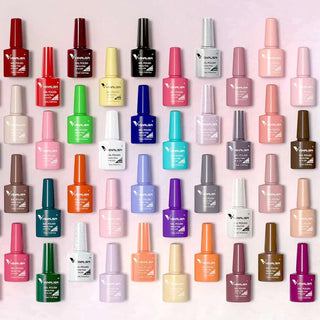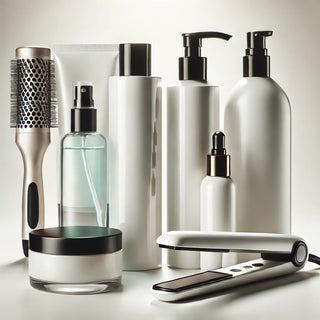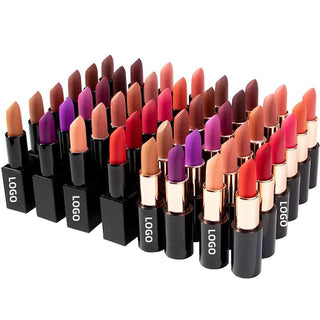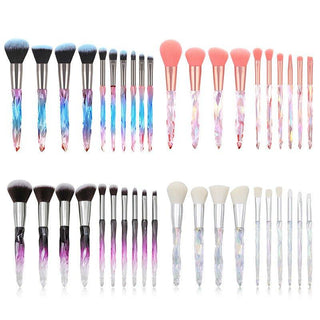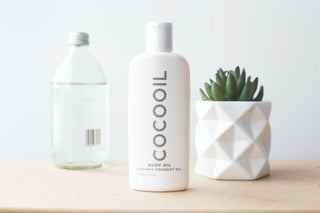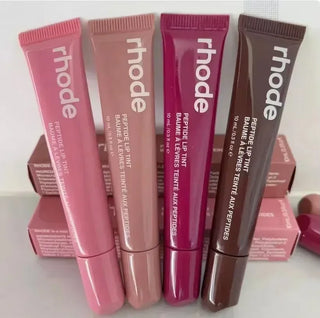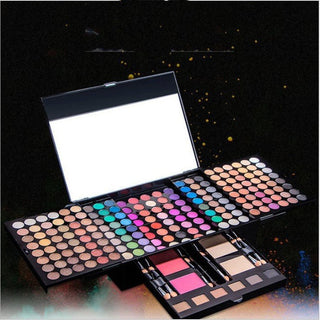Getting that healthy glow everyone talks about can feel like a mystery. But honestly, it's not as complicated as it seems. It often comes down to using the right stuff on your skin. We're talking about natural skin care product options that really work with your skin, not against it. Forget all the complicated routines and weird-sounding chemicals for a bit. Let's look at some simple, effective natural skin care product choices that can help your skin look and feel its best. It’s about giving your skin what it needs to shine, naturally.
Key Takeaways
- Natural skin care products use ingredients from plants and minerals, which are usually gentler on your skin.
- These products can help your skin look brighter and healthier over time without harsh chemicals.
- Choosing natural options means you're often supporting brands that care about the environment and animal welfare.
- You can find good natural skin care products at many stores, both online and in person.
- When picking a natural skin care product, check the ingredient list to make sure it's right for your skin type.
1. Vitamin C Serum
If you're looking for that healthy, lit-from-within look, a vitamin C serum is a pretty solid place to start. This stuff is like a superhero for your skin, mainly because it's a really strong antioxidant. What does that mean for you? Well, it helps brighten things up, making those little dark spots and uneven tones less noticeable. Plus, it gives your skin a nudge to make more collagen, which is what keeps things looking plump and firm.
When you're picking one out, try to find a serum that uses a stable form of vitamin C. Sometimes, vitamin C can break down easily, and then it's not as effective. You'll also see a lot of them mixed with other good ingredients. Things like hyaluronic acid are great for adding moisture, and niacinamide is another popular one that helps with all sorts of skin issues, from redness to pores.
Here's a quick rundown of what vitamin C serums are good for:
- Brightening: Helps fade dark spots and hyperpigmentation.
- Antioxidant Protection: Shields your skin from damage caused by pollution and sun exposure.
- Collagen Support: Encourages your skin to produce more collagen for a firmer appearance.
- Even Skin Tone: Works to make your complexion look more uniform.
Using a vitamin C serum consistently can really make a difference in how your skin looks and feels over time. It's not a magic fix overnight, but with regular use, you'll likely see a more radiant and healthy-looking complexion. Just remember to be patient and stick with it!
It's usually best to apply vitamin C serum in the morning. This way, it can work its antioxidant magic throughout the day, protecting your skin from environmental stressors. Just apply a few drops to clean, dry skin before your moisturizer and sunscreen.
2. Jojoba Oil

You know, sometimes it feels like finding the right moisturizer is a whole quest. So many things promise to hydrate but end up feeling sticky or, worse, clogging your pores. That's where jojoba oil comes in, and honestly, it's pretty neat.
What makes jojoba oil special is that it's not really an oil at all, but a liquid wax. It's super similar to the natural oils (sebum) our skin produces. Because of this, it's really good at balancing things out. If your skin is oily, it can help signal to your skin that it doesn't need to make so much oil. If your skin is dry, it provides moisture without feeling heavy.
Here's a quick rundown of why it's a skincare favorite:
- Mimics Natural Sebum: This is the big one. It helps keep your skin's natural oil production in check.
- Non-Comedogenic: This means it's unlikely to clog your pores, which is a huge win for anyone prone to breakouts.
- Rich in Nutrients: It's got Vitamin E and B-complex vitamins, plus minerals like chromium, copper, and zinc, which are good for keeping your skin healthy.
- Soothing Properties: It can help calm down irritated skin, making it a good choice for people with conditions like eczema or rosacea.
Jojoba oil is a fantastic ingredient because it works with your skin's natural processes rather than against them. It moisturizes, balances, and protects without that heavy, greasy feeling that some other oils can leave behind. It's a simple, effective addition to almost any skincare routine.
It's also pretty versatile. You can find it in moisturizers, cleansers, and serums. Sometimes, you can even use pure jojoba oil directly on your skin or hair. It absorbs pretty quickly, leaving your skin feeling soft and smooth, not greasy. Definitely worth trying if you're looking for something that just works without a lot of fuss.
3. Rosehip Oil
Rosehip oil is one of those ingredients that really gets talked about a lot, and for good reason. It comes from the seeds of a rose bush, and it's packed with stuff that's good for your skin. Think essential fatty acids, like omega-3 and omega-6, plus a good dose of antioxidants.
It's particularly known for its ability to help with skin repair and hydration. If you're dealing with scars, fine lines, or just uneven skin texture, rosehip oil can be a real game-changer. It also has vitamins A and C, which are great for helping your skin renew itself and get that healthy glow back.
Here's a quick look at what makes it so special:
- Hydration: The fatty acids help keep your skin moisturized without feeling heavy.
- Repair: It can help fade scars and reduce the look of fine lines and wrinkles.
- Renewal: Vitamins A and C support new skin cell growth.
- Antioxidants: These fight off damage from things in the environment.
Rosehip oil is pretty versatile. It's not usually super heavy, so a lot of skin types can handle it. Just a few drops can make a noticeable difference over time, especially if you use it regularly.
When you're picking out a rosehip oil, look for cold-pressed versions. This method helps keep all those good nutrients intact. It's a solid choice if you're looking to improve your skin's overall look and feel.
4. Green Tea Extract
Green tea extract is a pretty amazing ingredient you'll find in a lot of natural skincare these days. It comes from the leaves of the Camellia sinensis plant, the same plant that gives us regular green tea to drink. But in skincare, it's packed with compounds called antioxidants, especially catechins like EGCG. These little powerhouses are what make green tea extract so good for your skin.
These antioxidants help protect your skin from damage caused by things like pollution and UV rays, which can lead to premature aging. It's like a shield for your face. Plus, it's known for its ability to calm things down. If your skin gets red or irritated easily, green tea extract can be a real lifesaver.
Here's what it can do for you:
- Fights Free Radicals: The antioxidants neutralize unstable molecules that can harm your skin cells.
- Reduces Inflammation: It has properties that help calm redness and soothe sensitive or irritated skin.
- Improves Skin Tone: Regular use can lead to a more even and brighter complexion.
- Supports Elasticity: Some studies suggest it can help maintain your skin's firmness.
When you're looking for products with green tea extract, check the ingredient list. You'll often see it listed as 'Camellia Sinensis Leaf Extract' or 'Green Tea Leaf Extract'. It's a gentle ingredient that works well for most skin types, even those that are a bit sensitive.
It's not just about protection, though. Green tea extract can also help improve how your skin looks and feels over time. It's a natural way to keep your skin looking healthier and more vibrant.
5. Rosa Damascena
You might have seen Rosa Damascena, or Damask rose, popping up in a lot of natural skincare lately. It's not just for a pretty smell, though that's a nice bonus. This stuff is actually pretty good for your skin.
It's known for being really calming and hydrating. If your skin gets red easily or feels a bit irritated, products with rose extract or rose water can help settle it down. It's like a gentle hug for your face.
Beyond just soothing, Rosa Damascena is packed with antioxidants. Think of these as little helpers that fight off the bad stuff in the environment that can make your skin look tired or older. So, it helps protect your skin while also making it feel better.
Here's what makes it stand out:
- Hydration: It helps your skin hold onto moisture, making it feel plump and soft.
- Soothing: Great for calming down redness and irritation.
- Antioxidant Power: Fights off damage from things like pollution and sun exposure.
- Aromatic Experience: Adds a lovely, natural scent to products.
Using products with Rosa Damascena can really make a difference if you're looking for a gentler approach to skincare. It feels luxurious without being harsh, and the benefits are pretty solid for keeping your skin happy and healthy.
It's a nice ingredient to look for if you want that extra bit of comfort and protection for your complexion.
6. Hyaluronic Acid
Hyaluronic acid is a real powerhouse when it comes to keeping your skin hydrated. It's a natural substance found in our bodies, and its main job is to hold onto water, keeping tissues lubricated and moist. When you put it on your skin, it acts like a magnet for moisture, pulling it from the air and deeper layers of your skin to the surface.
This ingredient is fantastic for plumping up the skin, making fine lines and wrinkles less noticeable. It works by drawing water into the skin cells, which gives your complexion a fuller, smoother look. It's suitable for pretty much all skin types, even oily or acne-prone skin, because it's lightweight and doesn't clog pores. You'll often find it in serums, moisturizers, and even eye creams.
Here's why it's a skincare favorite:
- Intense Hydration: It can hold up to 1000 times its weight in water, providing serious moisture.
- Plumping Effect: Helps to fill out the skin, reducing the appearance of fine lines.
- Barrier Support: Aids in strengthening the skin's natural barrier, helping it retain moisture better.
- Soothing Properties: Can help calm irritated or sensitive skin.
To get the most out of hyaluronic acid, try applying it to slightly damp skin. This gives it more water to draw in, making your skin feel extra soft and smooth. It's a simple step that can make a big difference in how your skin looks and feels.
Hyaluronic acid is a humectant, meaning it attracts water. When applied to the skin, it pulls moisture from the environment and the deeper layers of your skin to the surface, helping to keep your complexion hydrated and looking dewy. It's a gentle yet effective way to boost your skin's moisture levels without feeling heavy or greasy.
7. Niacinamide

Niacinamide, also known as vitamin B3, is a real multitasker when it comes to skincare. It's a form of vitamin B that your body can't make on its own, so getting it through your diet or skincare is important. It's super helpful for calming down redness and irritation, making it a good choice if your skin gets easily bothered.
What else can it do? Well, it's pretty good at helping to control oil production, which can be a lifesaver if you tend to get shiny throughout the day. It also helps to make your pores look smaller, not by actually shrinking them, but by keeping them clear and less noticeable. Plus, it can strengthen your skin's natural barrier, which is like giving your skin a better defense system against all the stuff it has to deal with.
Here are some of the benefits you might notice:
- Reduces redness and inflammation
- Helps control oiliness
- Minimizes the appearance of pores
- Improves skin's barrier function
- Can help with dark spots over time
It's generally well-tolerated by most skin types, even sensitive ones, which is a big plus. You'll find it in a lot of different products, from serums to moisturizers and even cleansers.
When you're looking for products with niacinamide, check the ingredient list. It's usually pretty high up, meaning there's a good amount of it in the formula. It works well with other ingredients too, so don't be surprised to see it paired with things like hyaluronic acid or vitamin C in your favorite products.
8. Squalane
Squalane is a real game-changer in the skincare world, and for good reason. It's a hydrogenated version of squalene, a lipid that our bodies naturally produce to keep our skin hydrated and protected. The catch is, our natural squalene production dips as we get older, which is where squalane in skincare comes in handy.
It's a fantastic moisturizer that mimics your skin's natural oils, making it super compatible and unlikely to cause irritation. You'll often find it derived from olives or sugarcane these days, which is a more sustainable and vegan-friendly option compared to the older shark-derived versions. It's lightweight, absorbs quickly, and doesn't leave that greasy feeling behind, which is a big win for anyone who dislikes heavy creams.
Here's why squalane is worth adding to your routine:
- Deep Hydration: It helps your skin hold onto moisture, keeping it plump and soft.
- Barrier Support: It strengthens your skin's natural barrier, protecting it from environmental stressors.
- Soothing Properties: It can calm redness and irritation, making it great for sensitive skin types.
- Antioxidant Benefits: While not its primary role, it does offer some protection against free radicals.
Squalane is a bit of a chameleon ingredient. It works well for pretty much all skin types, from oily to dry, and even acne-prone skin. Because it's so similar to our own sebum, it can actually help balance oil production. If your skin is overcompensating by producing too much oil, squalane can signal that it has enough hydration, potentially reducing excess oiliness over time. It's also non-comedogenic, meaning it's unlikely to clog your pores.
When you're looking for products with squalane, check the ingredient list. It might be listed as "Squalane" or sometimes "Olive Squalane" if it's derived from olives. It's often found in moisturizers, serums, and facial oils, but you can also find it as a standalone oil for a more targeted approach. Just a few drops can go a long way in making your skin feel smoother and look healthier.
9. Facial Oils
Facial oils can feel a bit fancy, right? Like something you'd only use if you were really treating yourself. But honestly, they're pretty great for a lot of skin types, not just super dry ones. They're basically concentrated plant extracts that pack a punch with good fats, vitamins, and stuff that fights off damage.
The trick is picking the right one for you.
Here's a quick rundown of some popular choices:
- Argan Oil: This one's a classic. It's full of vitamin E and fatty acids, so it moisturizes well without feeling heavy. It's good for dry skin but also works for oily types because it helps balance things out. Plus, it's known for helping with fine lines.
- Jojoba Oil: This is super popular because it's really similar to our skin's natural oils. It moisturizes, calms things down, and doesn't usually clog pores. It's a safe bet for most people, even if you're prone to breakouts.
- Rosehip Oil: If you're dealing with dark spots or uneven skin tone, this is a good one to look into. It's got vitamins and fatty acids that help with skin repair and brightening.
- Blue Tansy Oil: You might see this in products for calming irritated skin. It's known for its anti-inflammatory properties and can give products a cool blue color.
When you're using them, just a few drops are usually enough. Massage it onto your face after your serum but before your moisturizer, or mix a drop or two into your moisturizer. It's a nice way to seal everything in and give your skin a little extra love.
Using facial oils can really make a difference in how your skin feels and looks. They add that extra layer of hydration and nourishment that sometimes lotions just can't quite match. It's like giving your skin a drink of water and some good food all at once.
10. Cleanser
Starting your skincare routine off right means picking the right cleanser. It's like the foundation for everything else you put on your face. You want something that gets rid of all the gunk – dirt, oil, whatever – without totally stripping your skin and leaving it feeling tight and dry. Think of it as a gentle reset button for your face.
There are a few different types of cleansers that work well for natural skincare:
- Oil Cleansers: Don't let the name fool you! These are great for dissolving makeup, dirt, and even excess oil. Natural oils like jojoba or olive oil can actually help balance your skin's natural moisture. They're usually pretty good for all skin types, especially if your skin leans towards dry or sensitive.
- Gel Cleansers: These often have a lighter feel and can be good for a deeper clean. Some might have fruit enzymes or mild acids to help brighten and gently exfoliate.
- Micellar Water: This is super gentle and doesn't usually require rinsing. It uses tiny oil molecules to lift away impurities. It's a convenient choice, especially if you have sensitive skin or just want a quick cleanse.
- Cream or Milk Cleansers: These are typically more hydrating and are fantastic for dry or sensitive skin. They clean without that stripped feeling.
The best cleanser for you will effectively remove impurities while respecting your skin's natural barrier. Look for formulas with ingredients like glycerin, ceramides, or plant-based oils. If you're dealing with acne, you might look for ones with salicylic acid or benzoyl peroxide, but make sure they also have hydrating ingredients like hyaluronic acid or niacinamide to keep things balanced.
Choosing a cleanser that aligns with your skin type and concerns is the first step toward achieving that healthy glow. It sets the stage for all the other beneficial products you'll be using.
Cleansing is the first step in any good skincare routine. It helps remove dirt, oil, and makeup, leaving your skin fresh and ready for the next steps. Using the right cleanser can make a big difference in how your skin looks and feels. Ready to find the perfect cleanser for your skin type? Visit our website today to explore our wide selection!
Wrapping Up Your Natural Glow Journey
So, there you have it. Choosing natural skincare isn't just about looking good, it's about feeling good and doing good for the planet too. We've talked about some really great ingredients and products that can help your skin look its best, all while being gentle and kind. Remember, consistency is key. Stick with a routine that feels right for you, and don't be afraid to experiment a little to find what truly makes your skin happy. Here's to a healthier, more radiant you!
Frequently Asked Questions
What are the main benefits of using natural skincare products?
Natural skincare products are great because they use gentle, plant-based ingredients that are usually kinder to your skin. They help nourish and protect your skin without harsh chemicals, which can lead to fewer reactions. Plus, they often support healthier skin in the long run and are better for the environment.
Which ingredients are best for a healthy glow?
For a glowing complexion, look for ingredients like Vitamin C serum to brighten and even out skin tone, Jojoba oil for moisture that won't clog pores, and Rosehip oil for its ability to help repair skin and reduce scars. Hyaluronic acid is also fantastic for keeping skin plump and hydrated.
How do I know if a natural skincare product is right for me?
It's always a good idea to do a patch test first. Apply a little bit of the product to a small, hidden area of your skin, like behind your ear or on your inner arm. Wait about 24 hours to see if you have any redness or irritation before using it all over your face.
Can I use natural skincare products with my current routine?
Yes, you can usually mix natural products with other skincare items. However, it's smart to introduce new products one at a time and do a patch test when combining different things. This helps make sure your skin doesn't react badly.
Where can I find good natural skincare products?
You can find natural skincare at health food stores, special beauty shops, and many online stores. It's best to look for brands that are honest about what's in their products and care about being good to the planet.
Are natural skincare products always effective?
Many natural ingredients are very effective because they work with your skin's natural processes. Ingredients like hyaluronic acid for moisture or tea tree oil for blemishes can show real improvements in skin texture and clarity over time, often without the harsh side effects of some synthetic ingredients.


